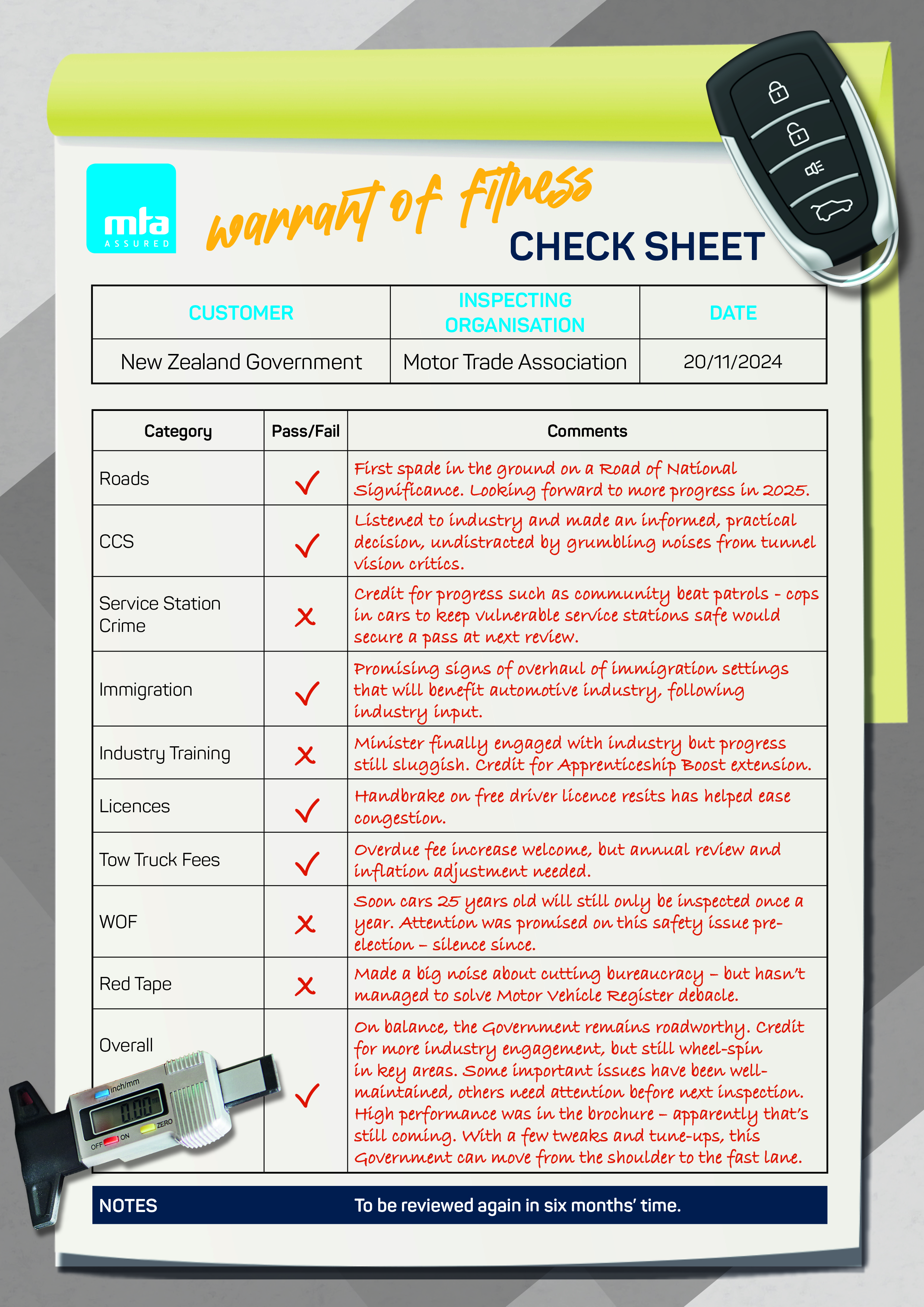Government ‘giving glaciers a bad name’

The Motor Trade Association (MTA) has awarded the government a “pass” in its latest “warrant of fitness” check for progress made on roads of national significance, immigration and the clean car standard.
That said, the coalition gets “fail” ratings for its “prolonged indecision” on industry training, the lack of action on reviewing the actual warrant of fitness (WOF) regime and silence on red tape affecting the sector.
The government has also earned passes for easing the driver-licence testing backlog and increasing fees for tow-truck operators.
Lee Marshall, the MTA’s chief executive, says the coalition has moved quickly and positively in some key areas affecting the automotive and transport sectors.
“Much of the policy change that the MTA called for before the election has been actioned,” adds Marshall, pictured. “The government promised to roll up its sleeves and address a number of key areas. It deserves credit for doing so.”
But when it comes to training, “it’s frankly ridiculous that we still have to give government a fail for the complete lack of direction in the post-Te Pūkenga world”.
Marshall continues: “They’ve now had more than a year – given it was an early pre-election policy for National – to come up with a new model to attract and train people, and address the labour shortage affecting many automotive businesses.
“And they’ve had plenty of advice from the MTA and industry on what training should look like – for industry, by industry – and still the speed of progress would give glaciers a bad name.”
The MTA describes its government WOF as a “creative format” for a serious rating of the coalition’s performance.
In the first edition six months ago, it was deemed roadworthy but with fails for crime, immigration and industry training.
Despite steps to address sentencing and introducing community beat patrols, action on crime remains a fail with service stations remaining one of the most vulnerable targets for criminals.
“Good on the government for tackling retail crime with a range of measures,” says Marshall. “What we’d like to see next is action to specifically protect service stations, which are the victims of violent crime at least twice a week on average.
“Overall though, we’re pleased the government has engaged with and listened to industry. We look forward to working with them to drive more positive change next year.”






